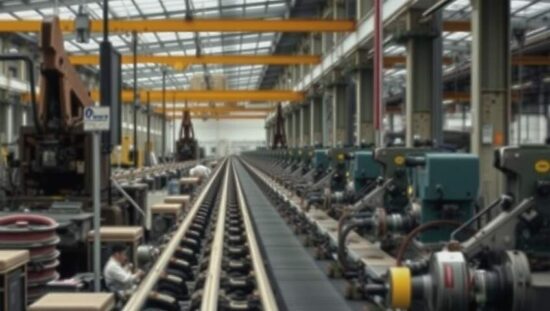The German government convened an emergency session Wednesday evening, bringing together industry representatives to address looming production disruptions stemming from the escalating crisis surrounding Nexperia, a critical semiconductor supplier. According to sources cited by “Handelsblatt”, the meeting, led by State Secretary Frank Wetzel, resulted in a consensus on three key objectives aimed at mitigating the significant economic fallout.
At the forefront of the government’s strategy is an attempt to broker mediation between China, the Netherlands and the United States. This diplomatic effort, deemed the most promising for immediate relief, reflects the complex geopolitical web underpinning the current predicament. The crisis is directly fueled by Washington’s sanctions against Wingtech, the Chinese parent company of Nexperia, compounded by the Dutch government’s recent intervention to restrict technology transfers, further exacerbating tensions.
Beyond immediate firefighting, the meeting underscored a critical shift in responsibility. Participants agreed that the burden of finding alternative chip suppliers cannot fall solely on Volkswagen, a major customer of Nexperia. Instead, a concerted, industry-wide effort to diversify sourcing will be required to safeguard against further disruptions. This recognizes the vulnerability of German and indeed European, manufacturing reliant on a handful of strategically sensitive suppliers.
The long-term consequences of the Nexperia situation are expected to accelerate existing debates over industrial sovereignty. Discussions will likely focus on bolstering Europe’s own domestic chip manufacturing capabilities and establishing significantly larger buffer stocks within corporate supply chains. This renewed emphasis on resilience challenges the decades-long reliance on globalized production models and highlights the growing awareness of the strategic importance of semiconductor technology, now firmly entrenched in the arena of geopolitical power plays. Critics argue that a fragmented and protectionist approach risks further complicating global trade but concede that the vulnerability exposed by this crisis necessitates a fundamental reassessment of Europe’s industrial strategy.





